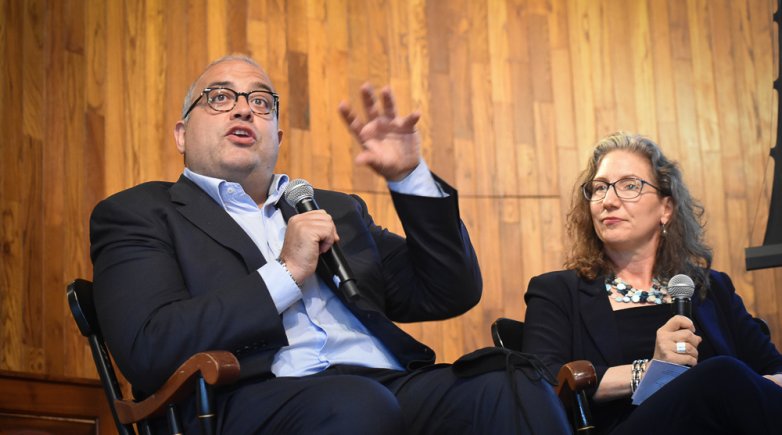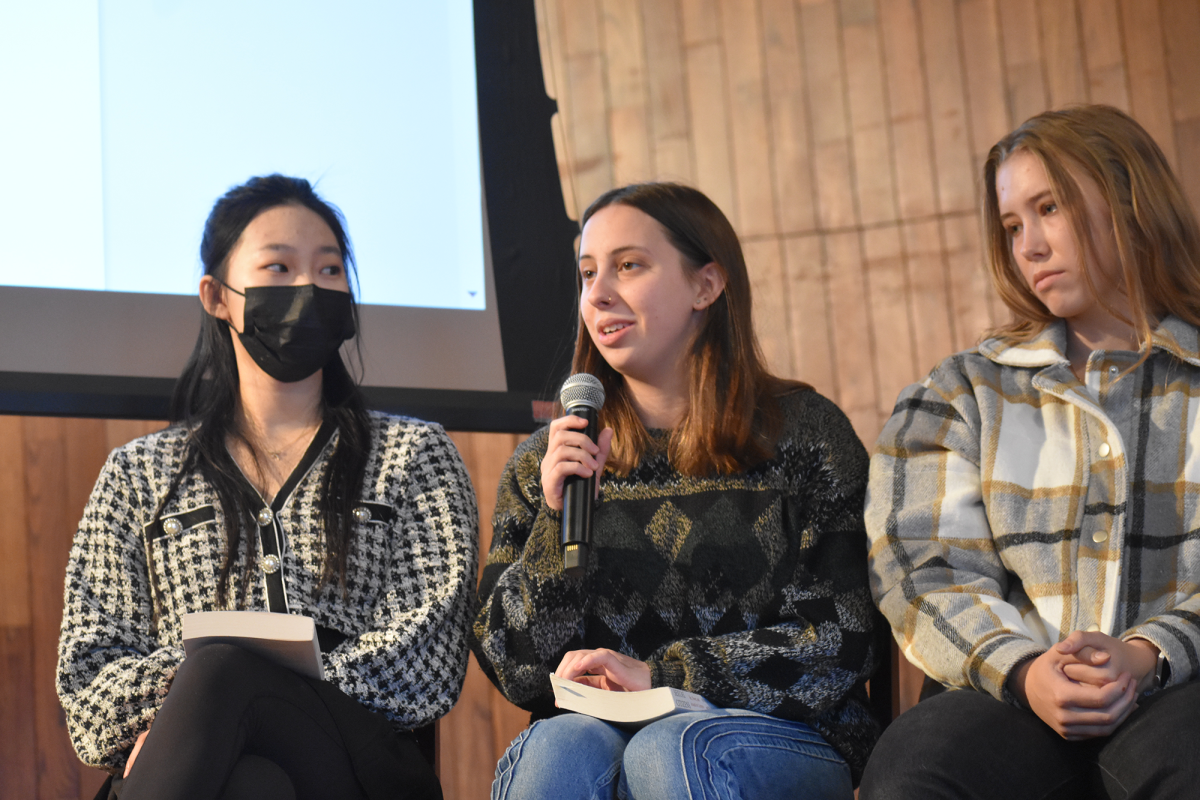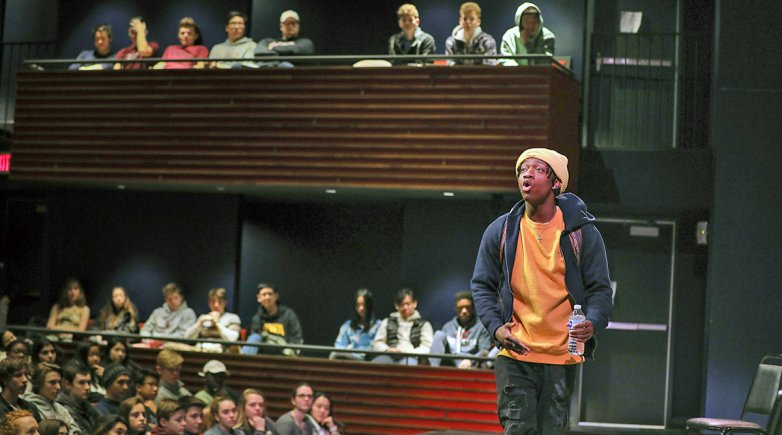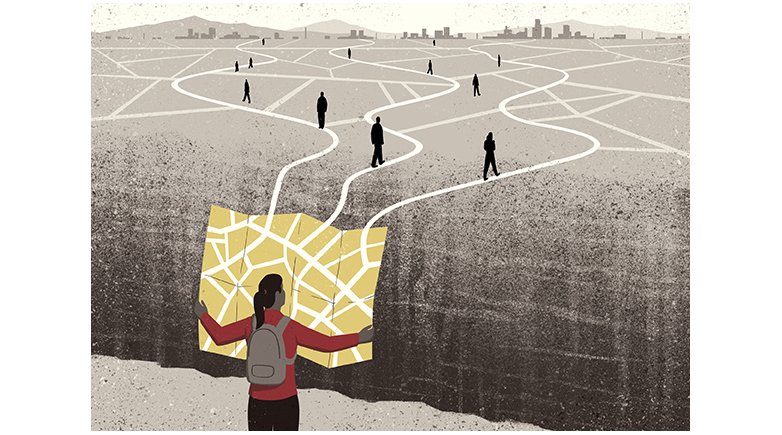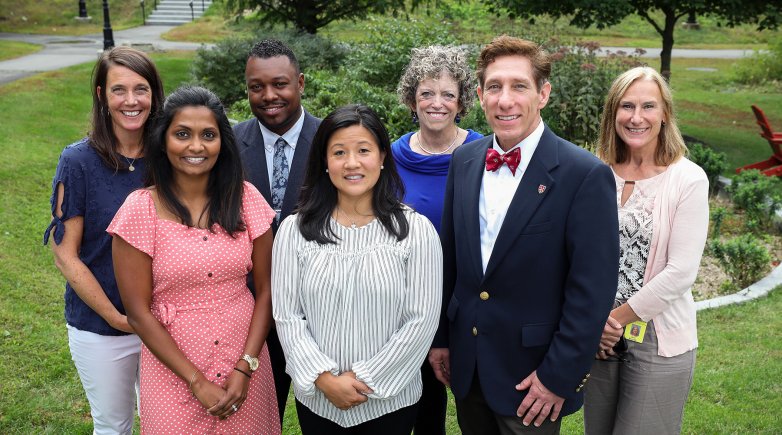How to be better sexual citizens
Scholars present research of the complex dynamics at play when it comes to sex and assault on U.S. college campuses.
Shamus Khan (left) and Jennifer S. Hirsch, authors of Sexual Citizens: Sex, Power, and Assault on Campus, address Exeter uppers and seniors in Assembly Hall.
A pair of scholars addressed members of the upper and senior classes in the Assembly Hall earlier this week to discuss their eye-opening work on the complex dynamics at play when it comes to sex and sexual assault on U.S. college campuses.
Jennifer S. Hirsch and Shamus Khan, authors of Sexual Citizens: Sex, Power, and Assault on Campus, joined four student moderators for the panel discussion on April 4, which kicked off Exeter’s recognition of April as Sexual Assault Awareness Month. Moderators Elina Yang ’23, Jennifer Finkelstein ’23, Ana Casey ’22 and Janessa Vargas ’22, all active in campus groups including Exonians Against Sexual Assault (EASA) and Feminist Union (Fem Club), asked Hirsch and Khan questions based on those generated by students after reading the book, which was widely distributed on campus. Uppers and seniors were asked to look through the book prior to the panel, which they were required to attend, and prepare for follow-up discussion in their Health and Human Development classes.
Based on extensive research with students at Columbia University as part of the Sexual Health Initiative to Foster Transformation (SHIFT), Sexual Citizens aims to change the nationwide conversation around campus sexual assault. While that conversation often focuses on how to adjudicate individual cases, Hirsch and Khan offer a more complete understanding of why sexual assaults happen and how students, parents, teachers and administrators can address gaps in sexual education and understanding starting long before students get to college.
“Instead of looking at sexual assault as a product of individual bad people intentionally doing bad things, we look at how it's engineered into campus life,” said Hirsch, an anthropologist and professor of sociomedical sciences at Columbia University. “Which seems grim, [but] once you see how it's built into life, you can think about building a different kind of campus.”
Early in the discussion, Casey asked the authors to discuss the framework they created for understanding issues of sex and sexual assault on campus, including three key concepts: sexual projects, sexual citizenship and sexual geographies.
